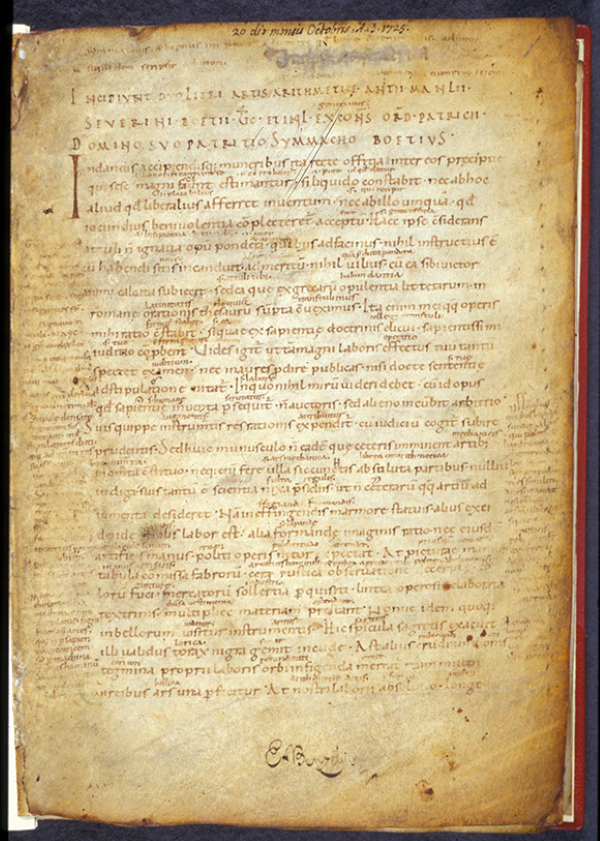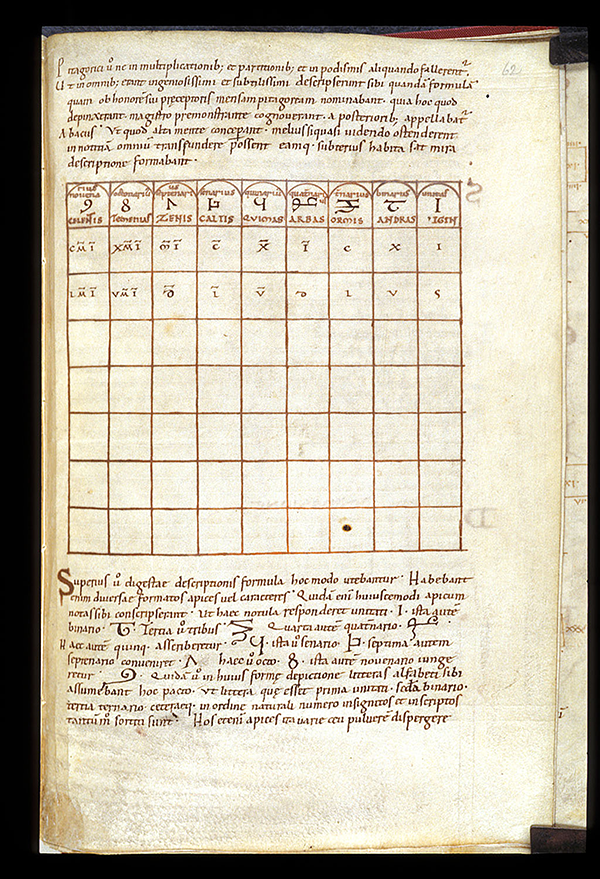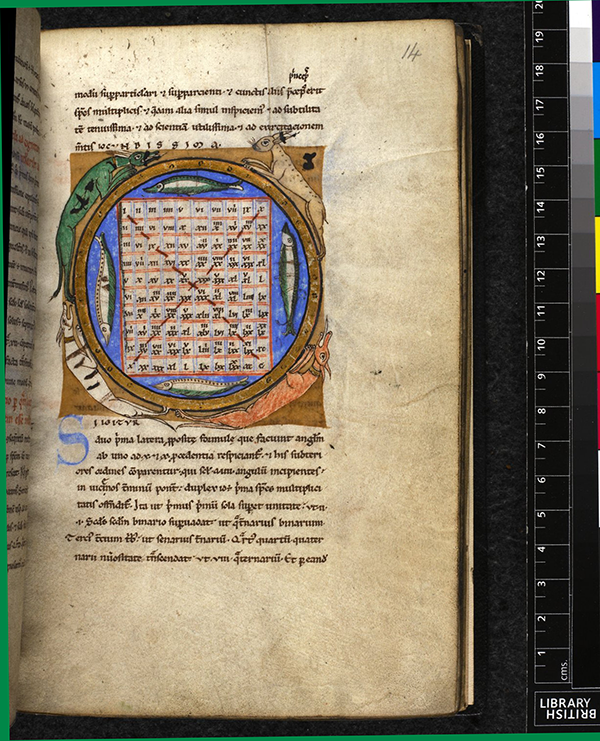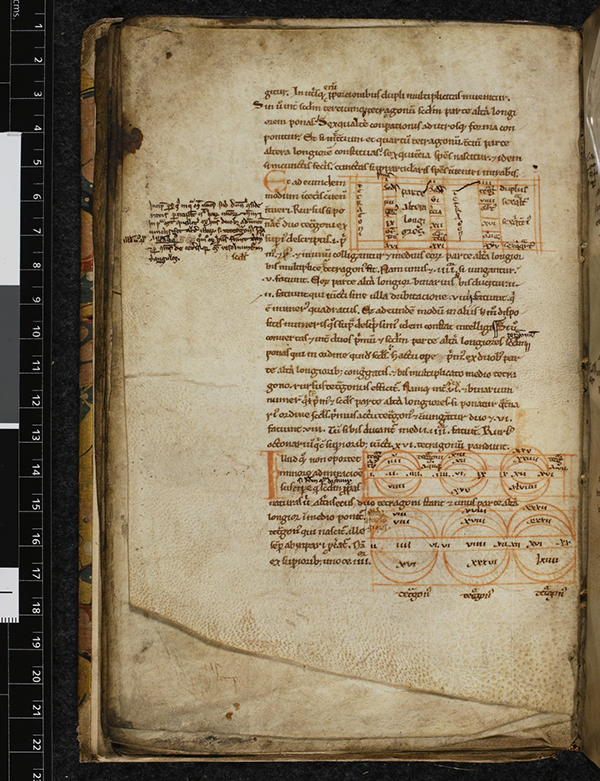- About MAA
- Membership
- MAA Publications
- Periodicals
- Blogs
- MAA Book Series
- MAA Press (an imprint of the AMS)
- MAA Notes
- MAA Reviews
- Mathematical Communication
- Information for Libraries
- Author Resources
- Advertise with MAA
- Meetings
- Competitions
- Programs
- Communities
- MAA Sections
- SIGMAA
- MAA Connect
- Students
- MAA Awards
- Awards Booklets
- Writing Awards
- Teaching Awards
- Service Awards
- Research Awards
- Lecture Awards
- Putnam Competition Individual and Team Winners
- D. E. Shaw Group AMC 8 Awards & Certificates
- Maryam Mirzakhani AMC 10 A Awards & Certificates
- Two Sigma AMC 10 B Awards & Certificates
- Jane Street AMC 12 A Awards & Certificates
- Akamai AMC 12 B Awards & Certificates
- High School Teachers
- News
You are here
Mathematical Treasure: Works of Boethius
Boethius (ca. 480–524) was a high government official, writer, and translator. He was born in Rome in the Byzantine Empire and died in Pavia in the Gothic Empire, both in what is now Italy. He translated works of philosophy and mathematics from Greek to Latin and contributed to monastic education's famous quadrivium of arithmetic, geometry, astronomy, and music theory.
Boethius’s work in arithmetic was greatly influenced by the Pythagorean arithmetic of Nicomachus of Gerasa (fl. 100). Here in a 10th-century German manuscript (Harley 3595), we find the first page (folio 1) of Boethius' De institutione arithmetica:

Appended to the manuscript above (Harley 3595) is an 11th-century copy of a translation by Boethius of Euclid’s Elements entitled Libri duo geometriae:

A 12th-century manuscript (Harley MS 549) contains Book 1 of Boethius’ De institutione arithmetica. On folio 14 is a chart of multiplication facts:

Boethius’ De institutione arithmetica also appears in a manuscript from 12th-century France (Harley MS 1737). Folio 21v of this manuscript supplies an example of the author’s use of number diagrams:

The images above were obtained through the courtesy of the British Library. Further investigation of the images and their source can be obtained through the online services of the British Library. Where possible, manuscript reference numbers are given for the item being viewed.
Frank J. Swetz (The Pennsylvania State University), "Mathematical Treasure: Works of Boethius," Convergence (January 2020)




